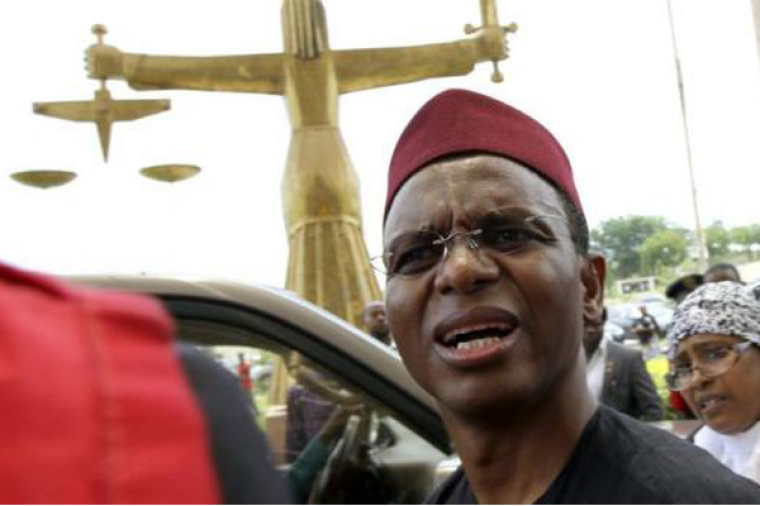Religious Regulation Bill meant to curtail evangelism in Nigeria, say Christian leaders

Nasir El-Rufai, governor of Kaduna state in Nigeria, proposed the Religious Regulation Bill last October which, if passed, would ban street evangelism and what the government may consider as offensive preaching among others. El-Rufai pointed out that this is necessary to curb religious extremism and the cycle of death and destruction in the country. However, Christian leaders are alarmed because they believe that the real motive behind the bill is to persecute Christians.
The clergy argues the bill is no longer necessary because of Nigeria's existing secular constitution. They also claim that most people in Kaduna do not support the statute. Chairman of the Kaduna State Chapter of the Christian Association of Nigeria (CAN) and Roman Catholic bishop of Zaria Diocese Rev. George Dodo told Morning Star News, "The proposed law is in contravention of the Nigerian Constitution and shall inhibit the preaching of the gospel when it becomes operational." He added, "We have reservations over the bill and believe that it will curtail religious freedom of the people, particularly, Christians in Kaduna state."
Violation of the proposed law, which would apply to all religions including Islam, would mean up to two years of imprisonment or a fine of 200,000 naira ($1,000) or both. The bill would also require preachers to acquire a one year renewable license in order to preach. The governor clarified in a field interview with journalists on April 3 that an umbrella Christian body and an umbrella Muslim body assigned by the Christian Association of Nigeria (CAN) and Jama'atu Nasril Islam (Society for the Support of Islam, or JNI) would be responsible for issuing the said preaching permits and that the government would only have an inter-ministerial body that will do occasional monitoring. The use of evangelical tapes and CDS on public grounds would also to be considered illegal and would warrant the fine of 200,000 naira.
El-Rufai stated that this particular bill may serve as a model for other Nigerian states as well.
 Christians don't have to affirm transgenderism, but they can’t express that view at work: tribunal
Christians don't have to affirm transgenderism, but they can’t express that view at work: tribunal Archaeology discovery: Medieval Christian prayer beads found on Holy Island
Archaeology discovery: Medieval Christian prayer beads found on Holy Island Presbyterian Church in America votes to leave National Association of Evangelicals
Presbyterian Church in America votes to leave National Association of Evangelicals Over 50 killed in 'vile and satanic' attack at Nigerian church on Pentecost Sunday
Over 50 killed in 'vile and satanic' attack at Nigerian church on Pentecost Sunday Ukrainian Orthodox Church severs ties with Moscow over Patriarch Kirill's support for Putin's war
Ukrainian Orthodox Church severs ties with Moscow over Patriarch Kirill's support for Putin's war Islamic State kills 20 Nigerian Christians as revenge for US airstrike
Islamic State kills 20 Nigerian Christians as revenge for US airstrike Man who served 33 years in prison for murder leads inmates to Christ
Man who served 33 years in prison for murder leads inmates to Christ


 Nigerian student beaten to death, body burned over ‘blasphemous’ WhatsApp message
Nigerian student beaten to death, body burned over ‘blasphemous’ WhatsApp message 'A new low': World reacts after Hong Kong arrests 90-year-old Cardinal Joseph Zen
'A new low': World reacts after Hong Kong arrests 90-year-old Cardinal Joseph Zen Iran sentences Christian man to 10 years in prison for hosting house church worship gathering
Iran sentences Christian man to 10 years in prison for hosting house church worship gathering French Guyana: Pastor shot dead, church set on fire after meeting delegation of Evangelicals
French Guyana: Pastor shot dead, church set on fire after meeting delegation of Evangelicals ‘Talking Jesus’ report finds only 6% of UK adults identify as practicing Christians
‘Talking Jesus’ report finds only 6% of UK adults identify as practicing Christians Mission Eurasia ministry center blown up in Ukraine, hundreds of Bibles destroyed: 'God will provide'
Mission Eurasia ministry center blown up in Ukraine, hundreds of Bibles destroyed: 'God will provide' Church holds service for first time after ISIS desecrated it 8 years ago
Church holds service for first time after ISIS desecrated it 8 years ago Burger King apologizes for 'offensive campaign' using Jesus' words at the Last Supper
Burger King apologizes for 'offensive campaign' using Jesus' words at the Last Supper Uganda: Muslims abduct teacher, burn him inside mosque for praying in Christ’s name
Uganda: Muslims abduct teacher, burn him inside mosque for praying in Christ’s name